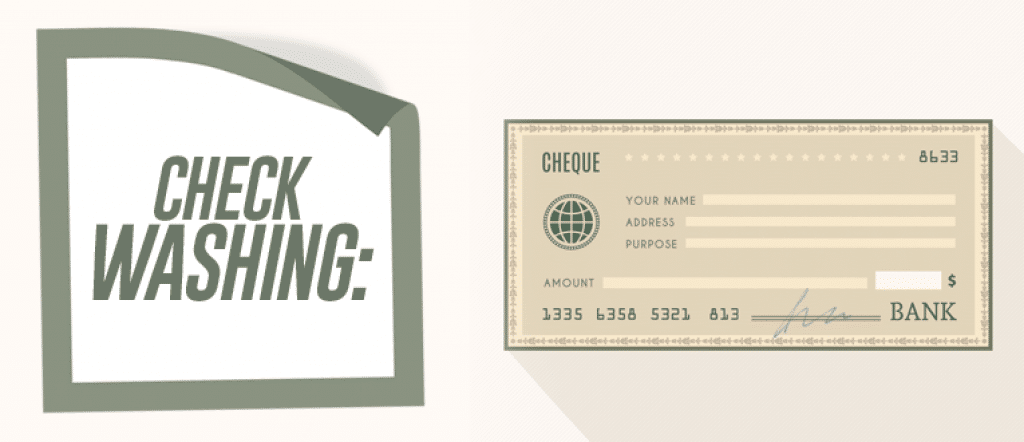
Check washing happens when criminals steal checks, use chemicals to remove the payees name and dollar amount and fill in their own information. Once altered they can deposit the checks into their own accounts, cash them or even sell the blank, signed checks to others. Many stolen checks are sold on the dark web. They may also use copiers and scanners to print fake copies of a check.
Most victims of check washing are unaware that their check has been stolen until they see a problem with their bank account balance.
Often the checks are stolen from home mailboxes or the Blue Post Office Collection Boxes.
According to The United States Postal Inspection Service, Postal Inspectors recover over $1 billion in counterfeit checks & money orders each year. https://www.uspis.gov/news/scam-article/check-washing
How to Avoid Check Washing
Avoid mailing checks when possible, sign up for online bill pay with anyone you do business with. Most banks have online bill payment services as do utility companies, mortgage companies and others. Pay with a credit card which is more secure and not tied to your bank account.
Keep your checks at home in a secure location, don’t carry checks in your purse or wallet.
Consider having a separate bank account to hold funds for check writing, leaving only enough cash in the account to cover the written checks.
Sign up for account alerts at your bank and credit union so that you are notified when any account activity takes place.
Don’t include confidential information on your checks such as phone numbers, Social Security numbers or other personal details.
If you must mail a check, go to the Post Office and mail it inside, don’t use the Blue Post Office Collection Boxes or your home mailbox.
Consider installing a locked mailbox at home. This type of mailbox allows Postal Delivery workers to leave your mail, then you use a key or code to open the mailbox.
Check your mail frequently, don’t allow mail to sit in the mailbox overnight. If you are sending mail, put it in the mailbox close to delivery/pickup time.
If you are going to be away for an extended amount of time, place a hold on your mail. You can submit a USPS Hold Mail request online at www.usps.com/manage/hold-mail.htm or in-person at your local Post Office.
Use black gel pens to write checks. Gel pens are harder for criminals to erase.
If you order checks don’t have them delivered to your home, pick them up at the bank instead.
Use security envelopes when sending mail. Avoid using envelopes that say, “payment enclosed”.
Shred personal documents before throwing them away. Nothing that contains personal, financial or confidential information should be thrown away until it has been shredded.
Use high security checks with features including foil holograms, heat-sensitive icons, watermarks, prismatic multi-color backgrounds, microprinting, fluorescent fibers, and security inks.
Sign up for USPS Informed Delivery. When you sign up for Informed Delivery you will receive a Morning Daily Digest email each day that shows a preview image of all incoming mail, as well as status updates about your incoming and outbound packages. You can see those notifications at any time via the dashboard from your phone, computer or tablet or in the USPS Mobile app. Informed Delivery also has other features that make tracking and receiving your packages easier and more convenient. /2024/06/14/usps-informed-delivery/
Review your checking accounts regularly, look for any unusual or unexpected withdrawals from your bank account and confirm that your checks clear. Sign up for electronic statements and other mailings from your bank to prevent confidential banking information from being stolen during mail transit.
What to Do If You Experience Check Washing
Notify your bank immediately. If your account has been compromised, consider closing the account and opening a new one.
Notify the police and file a police report.
Report the check washing to the United States Postal Inspection Service at 1-877-876-2455 or www.uspis.gov/report
Report the scam to the Federal Trade Commission (FTC) and your state’s attorney general.
Monitor your credit reports with the three major credit bureaus, Equifax, Experian and Transunion. You are entitled to free reports with each agency. Go to https://www.annualcreditreport.com/index.action to request your copies. Also freeze your credit with the major bureaus. /2024/07/08/how-to-freeze-your-credit/
